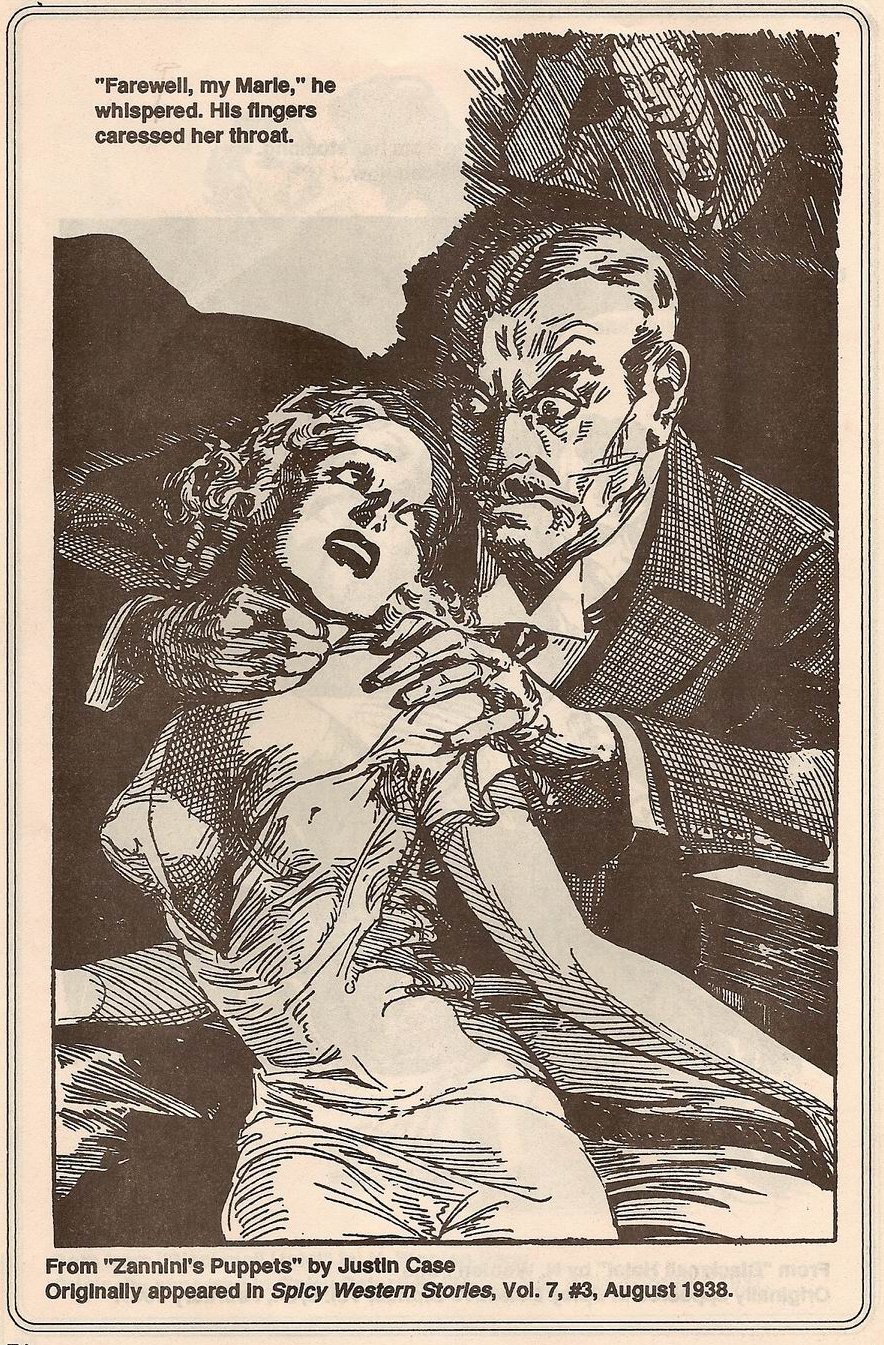Bacchus draws his conclusions.
There seems to be little evidence that either the shudder pulps specifically, or the broader constellation of risque pulp magazines in which they were bright-if-ruddy stars, were ever much in the sights of serious, direct, formal government censorship pressure. If a shudder pulp title ever lost a postal mailing permit, or a shudder pulp publisher or editor ever got charged with or tried for or convicted of obscenity in any US jurisdiction, this research turned up no evidence of it. Even such occasional bans as may have happened appear to have been local and/or informal and/or temporary.
However, it does appear that as the shudder pulps exploded in 1938, a sort of popular backlash was also getting underway, exemplified but by no means limited to the rise of NODL and by New York Mayor La Guardia’s increasingly strident expression of his long-standing antipathy to smutty pulps of all kinds. There’s every indication that the entire risque portion of the pulp industry, published overwhelmingly by veterans both tired and wiley, were careful to stay ten steps ahead of that backlash at all times, making all necessary changes in plenty of time to prevent precisely the sort of formal censorship that we could look back on from 2017 and say with certainty “There! That’s when they were censored.” And yet, in the big picture, it seems clear that between 1938 and 1942 there was a marked decline in the freedom of the shudder pulps to publish their signature “weird menace” content and in the inclination of their publishers to risk it. Whether the disappearance of shudder pulp from the market by the time the US entered World War II is because the market lost its taste for the content or the publishers never had a taste for the amount of hassle and risk that began to build after 1938 remains an open question. And if the rise of comic books and paperbacks had not already mooted the question, they soon would.

That concludes the main line of Bacchus’s argument, but stay tuned for a while, as there is an intriguing line of supplementary material coming up.
